Izere Antoine is part of the ultra-contemporary artists that are ushering in international recognition in the Rwandan art scene. The Kigali based figurative painter who employs the impasto technique to create alluring paintings of Black women in eloquent scenes, discusses his new exhibition in Houston, Texas, where he encourages his audience to embark on a journey of self-discovery.
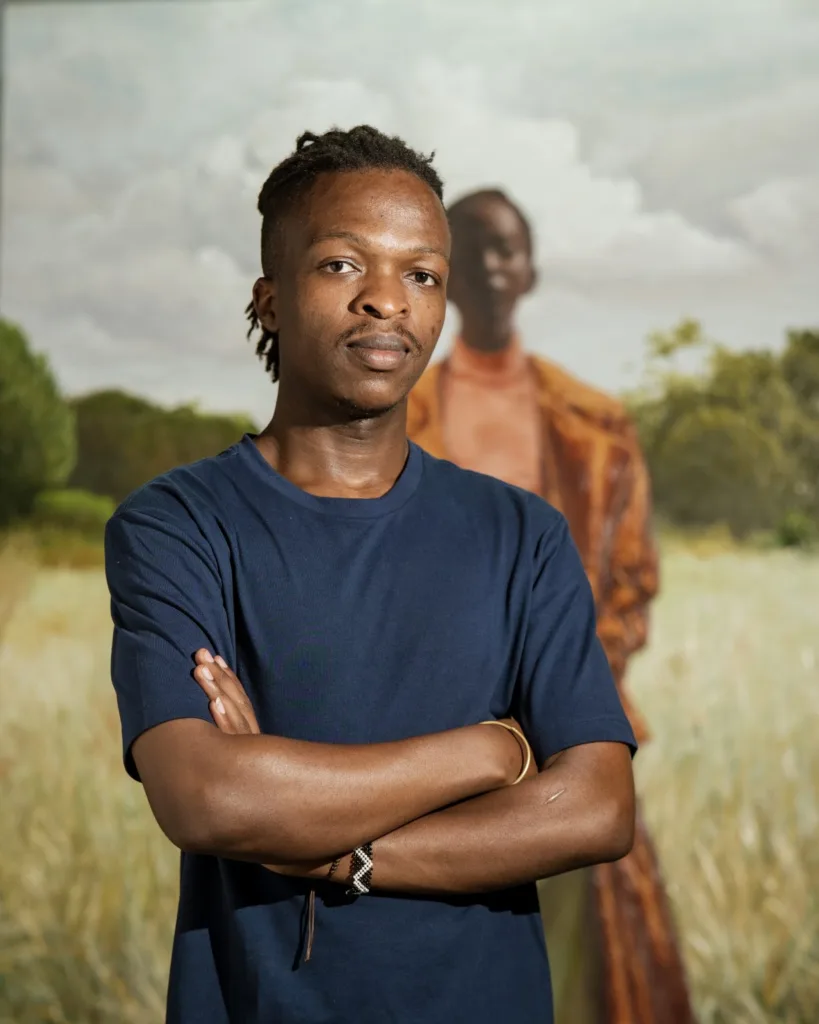
Image courtesy of Mitochondria Gallery
T.E: When did you first realize you wanted to be a visual artist? Can you share the journey that led you to this point?
I.A: Hello, firstly thanks for your time. I found out I wanted to be a professional visual artist in 2014. I can say that the urge to create drawings has been there, I loved sketching and recreating some cartoon characters, kids love that. I also had a lot on my mind when I chose what high school to attend. I can say that attending an art school kind of opened my eyes to the real image of art and artists. At first, doing art to me was like just being talented.
T.E: Have your personal experiences significantly impacted the themes or styles in your art?
I.A: Absolutely, it’s a part of what I believe as well. I think we live in the moments and realities of our thoughts which always come from the lived experience. My themes are more related to women. I think it’s the relationship I built with my mom and my sister growing up. I used to see my mom as the strongest being that ever lived and my younger sister as gentle, kind, and thoughtful. It was to me like a combination of power and simplicity at the same time. Style-wise I relate that to training in my art school as a sculptor and my personal experimental studies from the ancient art periods.
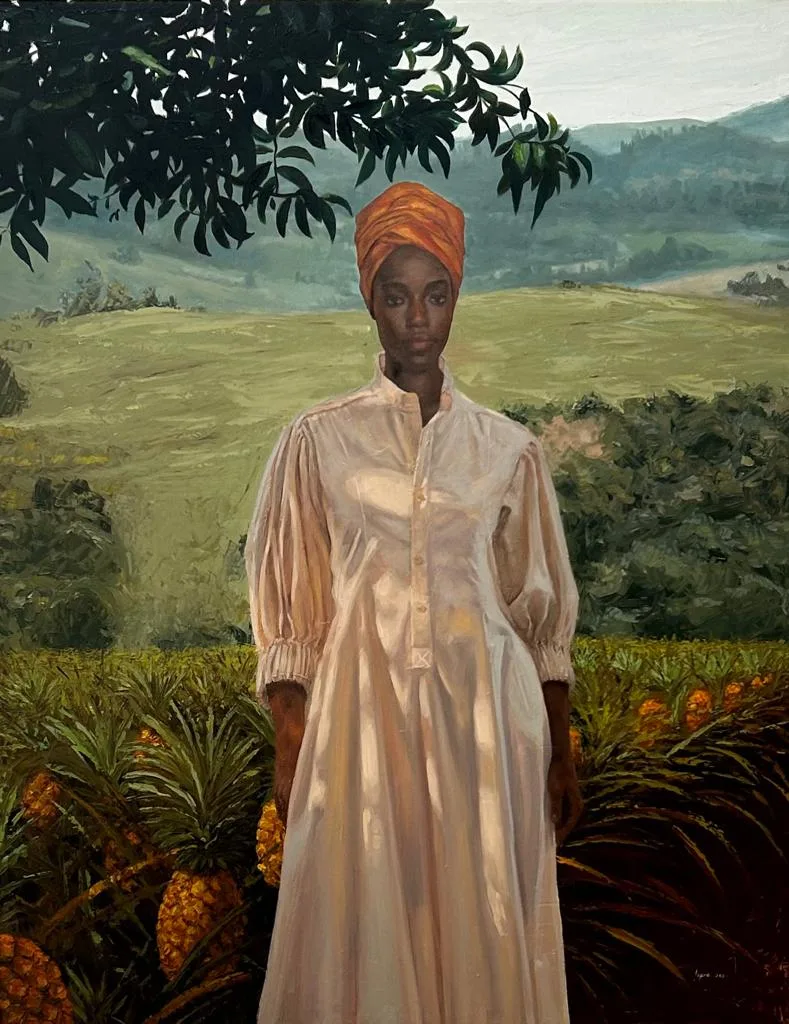
Image courtesy of Mitochondria Gallery
T.E: Are there any artists or people around you that have had a significant impact on your work?
I.A: Yes, I can say more of my studio-mates and my fellow artists. I think each and everyone’s experiences helps us to understand what we’re doing. We are the ones who choose our paths – of course but it always begins from what we see or have heard. I think we live in a world of learning from others and developing from there.
T.E: What was the initial spark or idea that led to the creation of “STREAMS AND TRAILS’?
I.A: It was initially from my first solo exhibition ’STRIDE.’ I had thoughts on ways to continue this theme. I had many ideas on the progression of life, and cultivation became the key inspiration for this one.
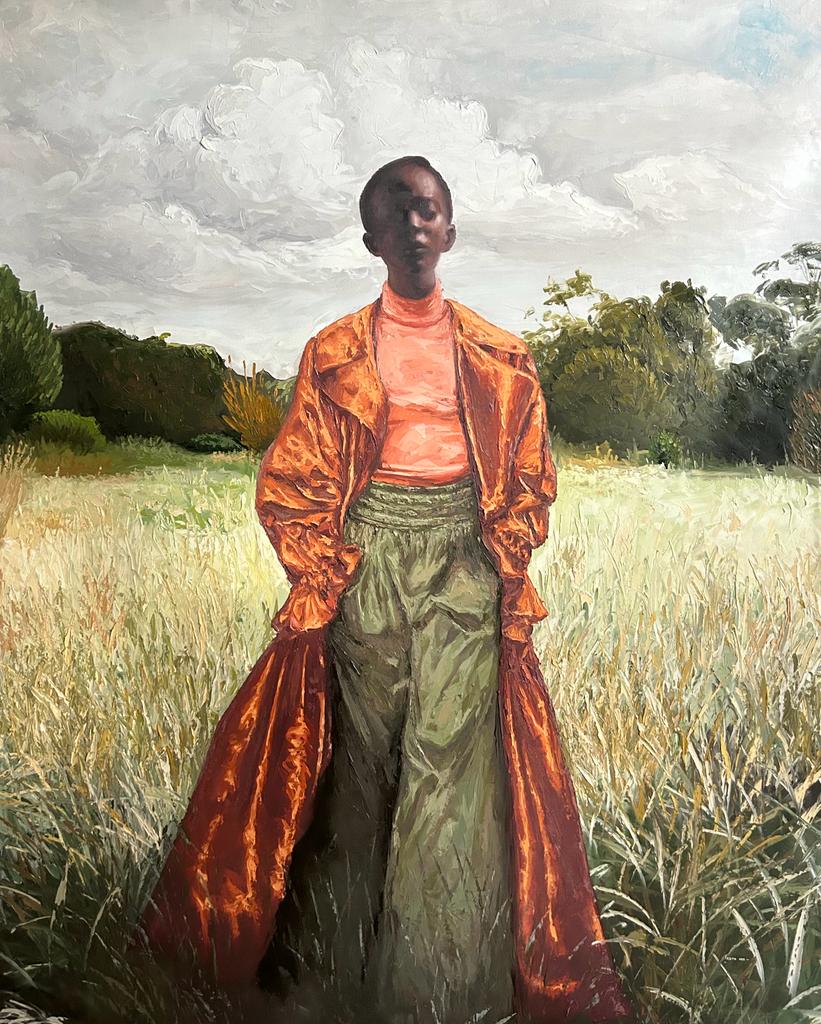
Image courtesy of Mitochondria Gallery
T.E: Can you discuss any emotional highs and lows you experienced while creating the pieces in this body of work?
I.A: I always want to create the scenes particularly in every piece according to the composition mostly. The colors of the environment and emotions always must give me ideas on how I want the final work to look like. I can say the excitement always comes from the whole process, I kind of like fall in love with the progression. The energy has to be there from the onset of creating the concept to the last stroke.
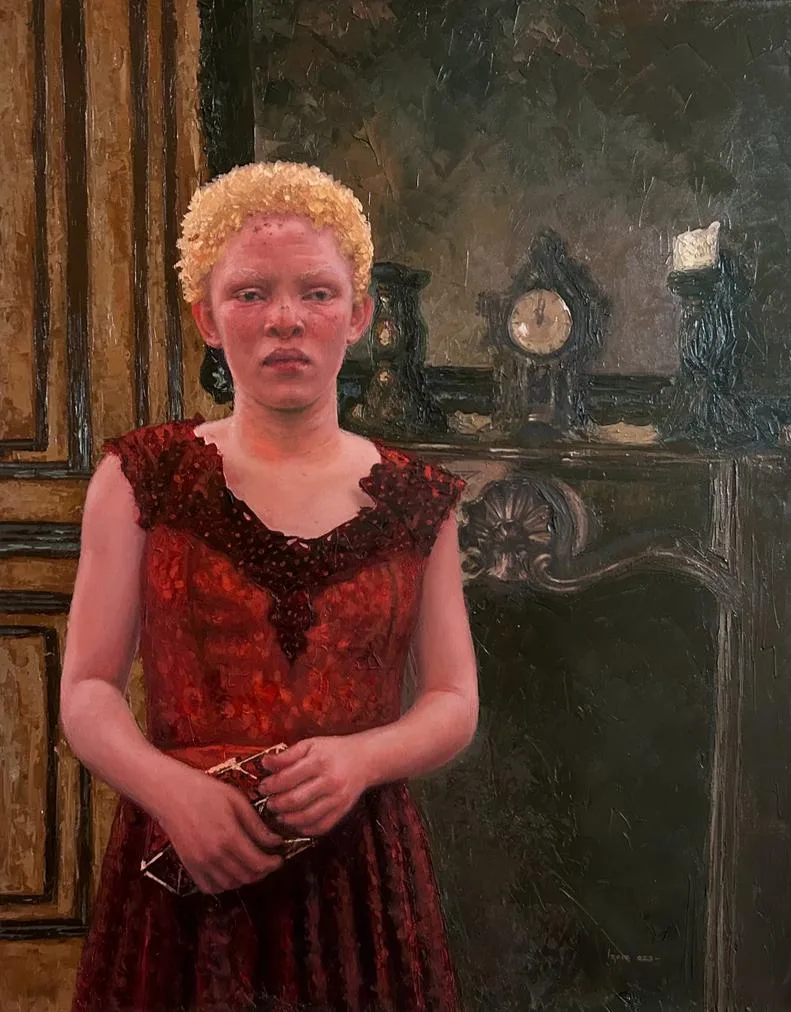
Image courtesy of Mitochondria Gallery
T.E: As this is your second solo exhibition, do you feel any pressure or expectations?
I.A: Of course, yes. I’m expecting people to enjoy what I’ve created from this project and I’m very happy that it’s going to be on a view after a long time of waiting, working, and learning as well. I’d love to hear from people their thoughts as well as critics.
T.E: How do you see your style or approach to art evolving in the future?
I.A: I love to learn and develop always. I practice many techniques of painting; growth always comes from experimenting. I don’t know what the future holds but I keep trusting the progress.
T.E: What advice can you give to other artists that are at the beginning stages of their careers?
I.A: It’s discipline first. Secondly, I think learning might be tricky sometimes as we learn from others, being yourself can differentiate you from others. Find your artistic language that is unique to you.
For more information about Izere Antoine, please find him on Instagram. For more on Mitochondria Gallery, check out website and Instagram for more updates.
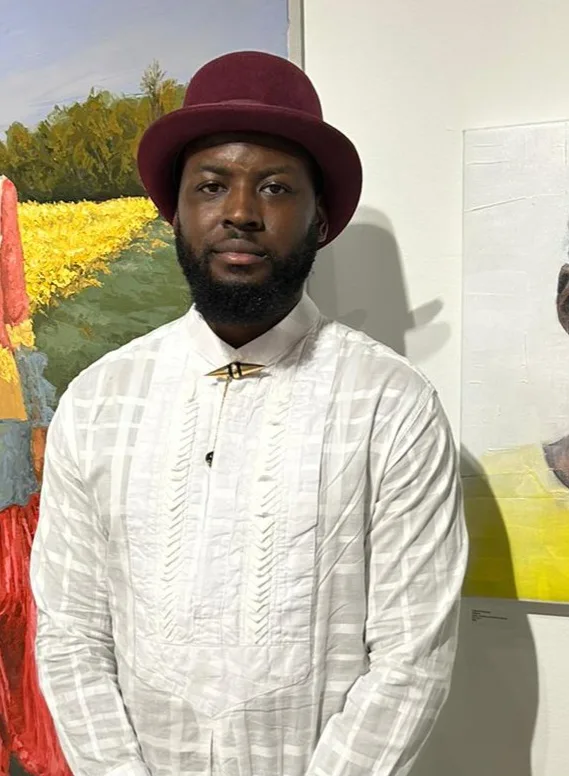
Timi Etebu is a writer based in Houston, Texas. His interests are in amplifying the voices of artists from Africa and the African Diaspora.


